Find Help
More Items From Ergsy search
-

Heart Failure : Symptoms of heart failure
Relevance: 100%
-

Heart Failure : What is heart failure?
Relevance: 100%
-

Heart Failure : Heart failure that cannot pump
Relevance: 97%
-

Heart Failure : The normal heart
Relevance: 95%
-

Heart failure introduction
Relevance: 93%
-

Are there different types of heart failure?
Relevance: 89%
-

What causes heart failure?
Relevance: 89%
-

How is heart failure diagnosed?
Relevance: 88%
-
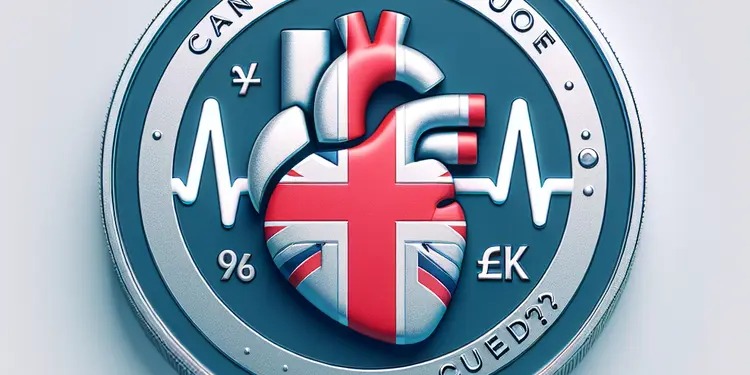
Can heart failure be cured?
Relevance: 88%
-

Can heart failure be prevented?
Relevance: 88%
-

Heart Failure : When the heart becomes stiff?
Relevance: 88%
-

What is the prognosis for someone with heart failure?
Relevance: 84%
-

Is Baxdrostat used in treating heart failure?
Relevance: 84%
-

Can heart failure affect other organs?
Relevance: 81%
-

What is the role of diet in managing heart failure?
Relevance: 81%
-
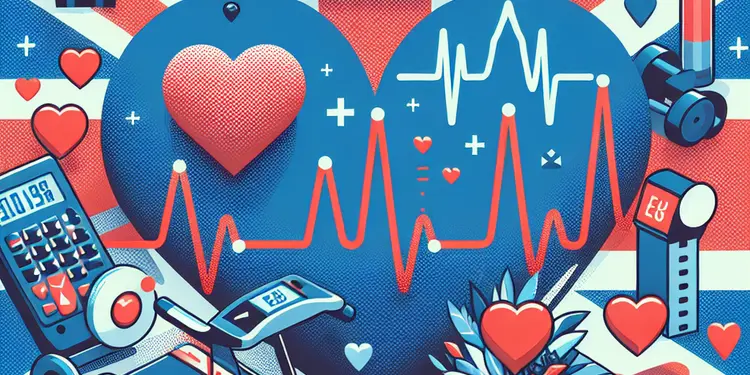
How does exercise impact heart failure?
Relevance: 81%
-

Heart Failure : Treatment and monitoring of fluid retention
Relevance: 80%
-

What should I do if I experience symptoms of heart failure?
Relevance: 80%
-

What medications are commonly prescribed for heart failure?
Relevance: 80%
-
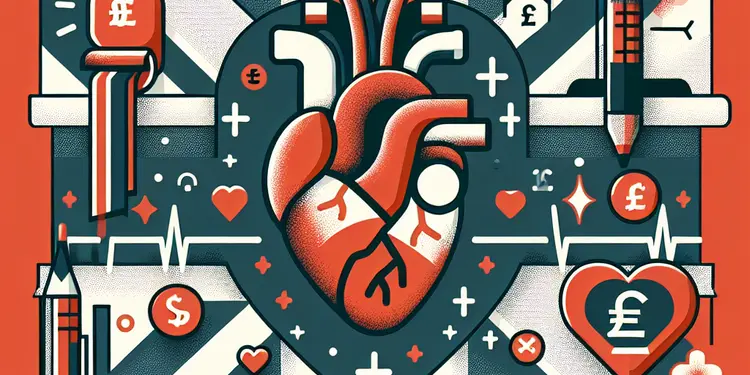
What is heart failure?
Relevance: 70%
-

What are the common symptoms of heart failure?
Relevance: 62%
-

What lifestyle changes can help manage heart failure?
Relevance: 54%
-

How often should someone with heart failure see their doctor?
Relevance: 54%
-
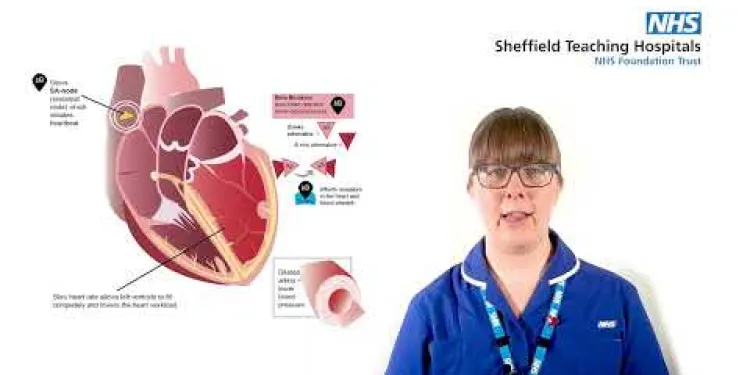
Medicines of the heart
Relevance: 49%
-

Is my abnormal heart rhythm dangerous?
Relevance: 47%
-

How do beta-blockers contribute to heart attack prevention?
Relevance: 45%
-

What are the long-term effects of a heart attack?
Relevance: 45%
-

Is my abnormal heart rhythm dangerous?
Relevance: 44%
-

Does coffee consumption have any long-term heart health effects?
Relevance: 43%
-

Heart stents
Relevance: 43%
-

What are the risk factors for a heart attack?
Relevance: 41%
-

Is it possible to prevent a heart attack?
Relevance: 39%
-

What is heart valve disease?
Relevance: 39%
-

Heart Attack Stories | NHS
Relevance: 39%
-
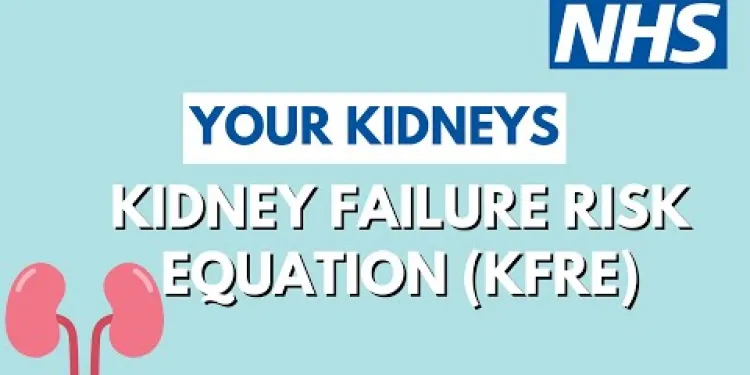
What is my risk of kidney failure with CKD (chronic kidney disease) | UHL NHS Trust
Relevance: 39%
-

Heart Attack Stories | NHS
Relevance: 39%
-

Is it possible to have a heart attack without chest pain?
Relevance: 37%
-

Are there specific fats that support heart health?
Relevance: 37%
-

Will a heart bypass make me live longer?
Relevance: 37%
-

Heart Attack Symptoms - Help Us Help You | NHS
Relevance: 37%
Understanding Heart Failure
What is Heart Failure?
Heart failure, also known as congestive heart failure, is a chronic condition where the heart muscle is unable to pump blood efficiently enough to meet the body's needs for blood and oxygen. It can affect one or both sides of the heart, leading to various health complications. The failure often results from the heart being too weak or too stiff to function properly.
Causes of Heart Failure
Several conditions can contribute to heart failure, including coronary artery disease, high blood pressure, and diabetes. Other causes may include weakened heart muscles (cardiomyopathy), heart valve disease, and congenital heart defects. Lifestyle factors such as obesity, smoking, and excessive alcohol consumption also play a crucial role in the development of heart failure.
Symptoms of Heart Failure
The symptoms of heart failure can vary depending on its severity. Common signs include shortness of breath, fatigue, and swelling in the legs, ankles, and feet. Patients may also experience rapid or irregular heartbeats, persistent coughing or wheezing, and increased need to urinate at night. As the condition progresses, even simple activities like walking or climbing stairs can become challenging.
Diagnosis and Treatment
Heart failure is typically diagnosed through a combination of medical history evaluation, physical examination, and diagnostic tests such as echocardiograms, electrocardiograms (ECG), and blood tests. Once diagnosed, treatment focuses on managing symptoms and improving heart function. This can involve lifestyle changes, such as dietary adjustments, increased physical activity, and quitting smoking. Medications like ACE inhibitors, beta-blockers, and diuretics are commonly used to manage symptoms and improve heart function.
Living with Heart Failure in the UK
In the United Kingdom, heart failure is a serious public health issue. The NHS provides comprehensive care and support for heart failure patients, including specialist heart clinics, rehabilitation programs, and patient education resources. It's crucial for patients and their families to be aware of the resources available and to work closely with healthcare providers to manage the condition effectively. Regular monitoring and medical follow-ups can greatly enhance the quality of life for those living with heart failure.
Understanding Heart Failure
What is Heart Failure?
Heart failure is when the heart cannot pump blood properly. This means your body might not get enough blood and oxygen. It can affect one side or both sides of your heart. Sometimes, the heart is too weak or too stiff. This makes it hard for the heart to work well.
Causes of Heart Failure
Many things can cause heart failure. Some causes are diseases like coronary artery disease, high blood pressure, and diabetes. Other causes include weak heart muscles, heart valve problems, and heart defects from birth. Being overweight, smoking, and drinking too much alcohol can also lead to heart failure.
Symptoms of Heart Failure
Heart failure has different symptoms. Common signs include finding it hard to breathe, feeling very tired, and swelling in your legs, ankles, and feet. Some people have fast or uneven heartbeats, cough a lot, or need to urinate more at night. As heart failure gets worse, even simple things like walking or climbing stairs can be hard.
Diagnosis and Treatment
Doctors find out if you have heart failure by looking at your medical history, checking you over, and doing tests like heart scans or blood tests. Treatment aims to help you feel better and make your heart work better. This can involve changing your diet, being more active, and stopping smoking. Medicines like ACE inhibitors, beta-blockers, and water pills can also help.
Living with Heart Failure in the UK
In the UK, heart failure is a big health problem. The NHS helps people with heart failure by giving care and support. There are special heart clinics, programs to help you get better, and resources to teach you about the condition. It is important to know what help is out there and to work with your doctors. Regular check-ups can help people with heart failure have a better quality of life.
Frequently Asked Questions
What is heart failure?
Heart failure is a chronic condition where the heart is unable to pump blood efficiently to meet the body's needs.
What are the main symptoms of heart failure?
Common symptoms include shortness of breath, fatigue, swollen legs, and rapid heartbeat.
What causes heart failure?
Causes can include coronary artery disease, high blood pressure, previous heart attacks, and certain genetic conditions.
Is heart failure the same as a heart attack?
No, a heart attack occurs when blood flow to the heart is blocked, while heart failure is a chronic condition where the heart doesn't pump efficiently.
How is heart failure diagnosed?
Diagnosis may involve physical exams, blood tests, ECGs, echocardiograms, and other imaging tests.
Can heart failure be cured?
There is no cure, but it can be managed with lifestyle changes, medications, and sometimes surgical procedures.
What medications are commonly prescribed for heart failure?
Medications may include ACE inhibitors, beta-blockers, diuretics, and aldosterone antagonists.
Can lifestyle changes help manage heart failure?
Yes, lifestyle changes such as a balanced diet, regular exercise, quitting smoking, and reducing salt intake can help manage the condition.
What dietary changes are recommended for someone with heart failure?
A diet low in sodium, rich in fruits and vegetables, lean proteins, and whole grains is recommended.
Is it safe to exercise with heart failure?
Yes, but it should be a moderate level of exercise, and you should consult with a healthcare provider before starting any new exercise regime.
How often should I attend follow-up appointments if I have heart failure?
Follow-up appointments typically depend on the severity of your condition and your treatment plan but are often recommended every 3 to 6 months.
Can heart failure cause complications?
Yes, complications can include arrhythmias, kidney damage, liver damage, and sometimes sudden cardiac arrest.
Is heart failure more common in certain age groups?
It is more common in older adults but can occur at any age, especially in those with risk factors.
Can people with heart failure lead a normal life?
With proper management and lifestyle adjustments, many people with heart failure can live well and maintain a good quality of life.
Is heart failure hereditary?
Some forms of heart failure can be hereditary, particularly those related to cardiomyopathies, but lifestyle and other medical conditions also play a significant role.
What is heart failure?
Heart failure means that the heart is not working as well as it should. The heart is a strong muscle. It pumps blood around the body. When the heart has trouble pumping, it is called heart failure.
If you have heart failure, you might get tired easily. You might find it hard to breathe. It is important to see a doctor if you have these problems.
Tools that can help you understand more:
- Ask a family member to explain.
- Use pictures or videos about the heart.
- Talk with a doctor or nurse.
Heart failure is a long-lasting problem. It happens when the heart can't pump blood well. This means the body doesn't get enough blood.
What are the main signs of heart problems?
Here are some signs that your heart might need help:
- Tired all the time, even when you rest.
- Finding it hard to breathe, even when sitting or lying down.
- Swelling in your feet, legs, or tummy.
- A feeling of being full or bloated quickly when you eat.
- A cough that won't go away.
- Gaining weight quickly over a few days.
If you have these signs, talk to a doctor. A doctor can help you feel better.
Here are some things you can do to help:
- Write down the signs you have, so you can tell the doctor.
- Use a calendar to keep track of when you see the doctor.
- Take someone with you to the doctor to help remember what to do.
Some common signs are trouble breathing, feeling very tired, puffy legs, and a fast heartbeat.
Why does the heart stop working properly?
Sometimes the heart can't pump blood well. This is called heart failure.
Here are some reasons why this happens:
- The heart gets weak.
- The blood vessels have trouble, like getting too narrow.
- The heart beats in a weird way.
- The heart has extra hard work to do.
If you or someone you know has heart problems, a doctor can help. Picture books and videos can also explain more. Talking to someone about how you feel can be helpful too.
Heart problems can happen if:
- Your heart's blood tubes get blocked.
- Your blood pushes too hard in your tubes.
- You had a heart problem before.
- Your family has heart problems.
It can help to use pictures and diagrams to understand more.
Are heart failure and heart attack the same?
No, they are not the same.
A heart attack happens when blood flow to the heart is blocked. It can cause pain in the chest.
Heart failure means the heart is weak and cannot pump blood well. It makes you feel tired.
If you are not sure about these terms or need help, you can:
- Talk to a doctor or nurse.
- Use simple health apps to learn more.
- Ask someone you trust to explain it to you.
No, a heart attack and heart failure are not the same.
A heart attack happens when something blocks blood from getting to the heart.
Heart failure happens when the heart is weak and can't pump blood well.
Here are some things that can help:
- Use sound-out tools to hear the words aloud.
- Highlight key words or phrases.
- Take breaks while reading to help understand better.
How do doctors find out if someone has heart failure?
To find out what is wrong, doctors might do different tests. They could:
- Check your body
- Take some blood
- Check your heart using a special test called an ECG
- Look at your heart with pictures from an echocardiogram
- Use other special pictures to see inside your body
It can help to have someone with you during these tests. They can support you and help you understand what is happening.
Will heart failure go away?
Heart failure is when the heart is not strong enough to pump blood well. It can make you feel tired and out of breath.
Heart failure usually does not go away forever. But doctors can help you feel better with medicine and treatments.
It's important to see your doctor and follow their advice.
Using a planner can help you remember your doctor's advice. You can also ask a friend or family member to help you stay on track.
It cannot be completely fixed, but you can make it better by changing some things in your life, taking medicine, and sometimes having surgery.
What medicines do doctors give to help with heart problems?
Some medicines can help. They are called ACE inhibitors, beta-blockers, diuretics, and aldosterone antagonists.
Try using big letters or reading one line at a time to make it easier to read.
Can changing how we live help with heart problems?
Yes, you can make your health better by doing some simple things:
- Eat healthy food.
- Exercise regularly.
- Stop smoking.
- Eat less salty food.
These things can help you feel better!
You can use tools like a meal planner to help you eat healthy food. A fitness app can help you exercise. You can also ask someone to remind you to stay on track.
What food changes are good for someone with heart problems?
It is good to eat foods with less salt.
Try to eat lots of fruits and vegetables.
Eat lean meats like chicken or fish.
Choose whole grains like brown bread or brown rice.
Can you exercise if your heart is not strong?
If your heart is not strong, exercising might be safe. But you must talk to a doctor first.
Here are some things to help:
- Talk to a doctor. They will tell you what is safe.
- Start slow. Do a little bit at a time.
- Listen to your body. If you feel tired or sore, stop and rest.
- Find easy exercises. Walking or stretching can be good.
- Stay with a friend. A friend can help and keep you safe.
Always make sure you are safe when you exercise.
Yes, you can exercise, but do it gently. Talk to your doctor before you begin any new exercise plan.
How often do I need to see the doctor if I have heart problems?
It is important to see your doctor regularly if you have heart problems. Talk to your doctor about how often you should have check-ups. They will tell you what is best for you.
Here are some tips to help you:
- Use a calendar to mark your doctor visits.
- Set a reminder on your phone for your appointments.
- Ask a friend or family member to help you remember.
This can help you stay healthy and feel better.
How often you see the doctor depends on how sick you are and your treatment. Most people need to go back to the doctor every 3 to 6 months.
Can heart failure cause problems?
Yes, some problems can happen. These include:
- Heart beating fast or slow (called arrhythmias).
- Kidney not working well.
- Liver not working well.
- Heart stopping suddenly.
Reading tips: Try breaking words into parts to understand them better. You can also use tools like read-aloud apps to help you.
Do some age groups get heart failure more often than others?
Heart failure happens when the heart isn't working well.
Heart failure is more common in older people.
If you want to know more, you could:
- Talk to a doctor.
- Look at pictures or videos that explain it.
- Use apps that help you learn new words.
It happens more often in older people. But it can happen to anyone, especially if they have certain things that make it more likely.
Can people with heart problems live a normal life?
Some people have heart problems called heart failure. This means the heart doesn't work as well as it should.
Many people with heart problems can still live a normal life. It is important to take medicine and visit the doctor regularly.
Here are some tips to help:
- Eat healthy food like fruits and vegetables.
- Exercise a little every day, like walking.
- Get plenty of rest and sleep.
Supportive tools can help too:
- Ask a friend or family member for help.
- Use a calendar to remember doctor visits and when to take medicine.
Your doctor can tell you more about how to stay healthy with heart problems.
With good care and changes in how we live, many people with heart problems can feel good and enjoy life.
Can you get heart failure from your family?
Some people may have heart problems because it runs in their family. This means a parent or grandparent had it too.
It is important to see a doctor to check your heart if other people in your family have had heart problems. The doctor can help you know what to do to keep your heart healthy.
Try using tools like picture cards or simple stories to understand better. Talking with someone who knows a lot about hearts can also help. They can explain things to you in a way that is easy to understand.
Some types of heart problems can run in families, especially those that affect the heart muscle. But how you live and other health issues also matter a lot.
Useful Links
This website offers general information and is not a substitute for professional advice.
Always seek guidance from qualified professionals.
If you have any medical concerns or need urgent help, contact a healthcare professional or emergency services immediately.
Some of this content was generated with AI assistance. We’ve done our best to keep it accurate, helpful, and human-friendly.
- Ergsy carfully checks the information in the videos we provide here.
- Videos shown by Youtube after a video has completed, have NOT been reviewed by ERGSY.
- To view, click the arrow in centre of video.
- Most of the videos you find here will have subtitles and/or closed captions available.
- You may need to turn these on, and choose your preferred language.
- Go to the video you'd like to watch.
- If closed captions (CC) are available, settings will be visible on the bottom right of the video player.
- To turn on Captions, click settings .
- To turn off Captions, click settings again.
More Items From Ergsy search
-

Heart Failure : Symptoms of heart failure
Relevance: 100%
-

Heart Failure : What is heart failure?
Relevance: 100%
-

Heart Failure : Heart failure that cannot pump
Relevance: 97%
-

Heart Failure : The normal heart
Relevance: 95%
-

Heart failure introduction
Relevance: 93%
-

Are there different types of heart failure?
Relevance: 89%
-

What causes heart failure?
Relevance: 89%
-

How is heart failure diagnosed?
Relevance: 88%
-

Can heart failure be cured?
Relevance: 88%
-

Can heart failure be prevented?
Relevance: 88%
-

Heart Failure : When the heart becomes stiff?
Relevance: 88%
-

What is the prognosis for someone with heart failure?
Relevance: 84%
-

Is Baxdrostat used in treating heart failure?
Relevance: 84%
-

Can heart failure affect other organs?
Relevance: 81%
-

What is the role of diet in managing heart failure?
Relevance: 81%
-

How does exercise impact heart failure?
Relevance: 81%
-

Heart Failure : Treatment and monitoring of fluid retention
Relevance: 80%
-

What should I do if I experience symptoms of heart failure?
Relevance: 80%
-

What medications are commonly prescribed for heart failure?
Relevance: 80%
-

What is heart failure?
Relevance: 70%
-

What are the common symptoms of heart failure?
Relevance: 62%
-

What lifestyle changes can help manage heart failure?
Relevance: 54%
-

How often should someone with heart failure see their doctor?
Relevance: 54%
-

Medicines of the heart
Relevance: 49%
-

Is my abnormal heart rhythm dangerous?
Relevance: 47%
-

How do beta-blockers contribute to heart attack prevention?
Relevance: 45%
-

What are the long-term effects of a heart attack?
Relevance: 45%
-

Is my abnormal heart rhythm dangerous?
Relevance: 44%
-

Does coffee consumption have any long-term heart health effects?
Relevance: 43%
-

Heart stents
Relevance: 43%
-

What are the risk factors for a heart attack?
Relevance: 41%
-

Is it possible to prevent a heart attack?
Relevance: 39%
-

What is heart valve disease?
Relevance: 39%
-

Heart Attack Stories | NHS
Relevance: 39%
-

What is my risk of kidney failure with CKD (chronic kidney disease) | UHL NHS Trust
Relevance: 39%
-

Heart Attack Stories | NHS
Relevance: 39%
-

Is it possible to have a heart attack without chest pain?
Relevance: 37%
-

Are there specific fats that support heart health?
Relevance: 37%
-

Will a heart bypass make me live longer?
Relevance: 37%
-

Heart Attack Symptoms - Help Us Help You | NHS
Relevance: 37%


